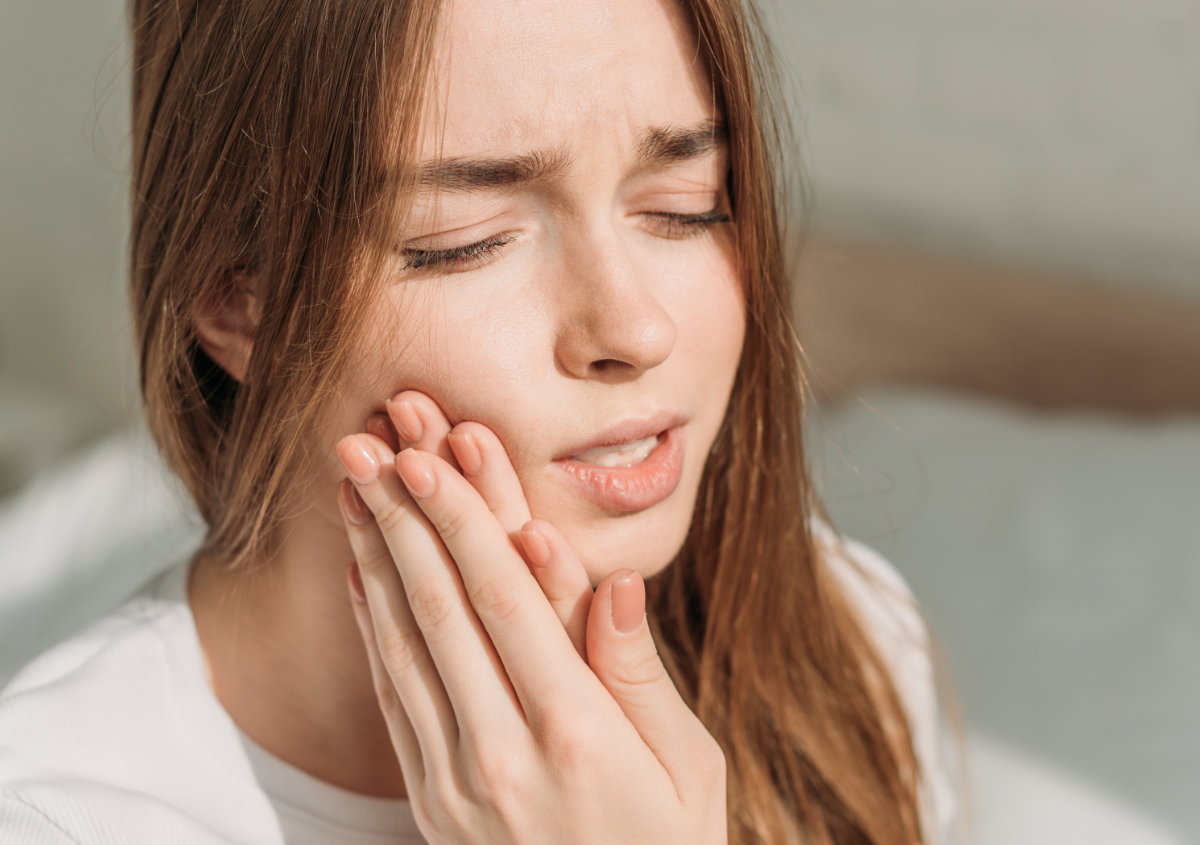
01
Jan
Jaw Disorders

People who grind their teeth can sometimes develop a serious problem with their jaw, which left untreated, can adversely affect the teeth, gums and bone structures of the mouth. One of the most common jaw disorders is related to a problem with the temporomandibular joint, the joint that connects your lower jaw to your skull, and allows your upper and lower jaw to open and close and facilitates chewing and speaking.
People with temporomandibular joint disorders (TMD) often have a clicking or popping sound when opening and closing their mouths. Such disorders are often accompanied by frequent headaches, neck aches, and in some cases, tooth sensitivity.
Request an Appointment
Some treatments for TMD include muscle relaxants, aspirin, biofeedback, or wearing a small plastic appliance in the mouth during sleep.
Minor cases of TMD involve discomfort or pain in the jaw muscles. More serious conditions involve improperly aligned joints or dislocated jaws. The most extreme form of TMD involves an arthritic condition of the jaw joint.
Jaw Disorder FAQS
Do you constantly experience unexplained headaches and jaw pain? The cause could be related to jaw disorders like TMJ pain that affects the two joints (temporomandibular joints) on either side of the face. If you suspect jaw disorder, we invite you to Douglas Hoppe DDS for diagnosis and care. However, before then, we encourage you to explore the FAQs section below to be well-prepared and informed.
One of the most common jaw disorders is TMJ disorder (TMD). This condition occurs when the joints connecting the lower jaw to the skull become strained, inflamed, or injured. Healthy functioning TMJs help the mouth with almost all functions, including chewing, smiling, yawning, talking, etc. When these joints are functioning optimally, you rarely notice their presence. However, when malfunction sets in, you may experience numerous unpleasant symptoms ranging from mild to severe.
The common cause of jaw problems like TMD is bruxism. Bruxism or chronic teeth grinding exerts incredible forces on your jaw joints and muscles, resulting in symptoms like jaw soreness, headaches, etc.
The other common causes of jaw disorders include:
• Jaw injury
• Infections or inflammatory disorders like arthritis
• Bite misalignment
In many cases, the causes of jaw pain aren’t clear. Whether the cause of your jaw pain is known or unknown, you should seek care immediately before the condition causes further health complications.
Your jaw structure has several components, but the most prominent are the TMJs—the two hinge-like joints that connect the jawbone to the skull. When these jaw joints are compromised, you may experience numerous symptoms, including:
• Jaw tenderness
• Chronic headaches
• Locked jaws, making it difficult to close and open your mouth
• Difficulty or painful chewing
• Facial pain
• Ringing sounds in the ear (tinnitus)
• Clicking sounds when using your jaws
Your doctor diagnoses your jaw pain by inquiring about your medical history, including past injuries, inflammatory diseases, and medical conditions related to the jaw. The doctor also asks about your symptoms to ensure they align with typical symptoms of jaw pain.
Next, the doctor conducts a thorough physical examination of the jaw and surrounding areas. This may involve palpating the jaw joints for tenderness, checking for any abnormalities in jaw movement, and assessing muscle function. Additionally, the dentist will examine your teeth, looking for signs of misalignment, dental occlusion issues, or evidence of teeth grinding (bruxism). Dental X-rays or other imaging studies may be used for a more detailed view.
You don’t always need medical attention if you have mild jaw pain symptoms. However, if your pain persists, you should seek care. Fortunately, many cases of jaw disorders can be addressed with conservative measures.
Your dentist will likely recommend an oral splint to address your jaw pain. A mouthguard protects your teeth from damage, especially if the cause is bruxism. A nightguard creates a protective barrier between the upper and lower teeth, minimizing the effects of bruxism. Additionally, a dental guard absorbs and distributes the grinding forces, allowing the jaw muscles and joints to relax.
Oral appliance therapy is the first-line care for jaw pain but isn’t the only option. The other options for addressing jaw disorders include:
• Muscle relaxants
• Stress management techniques
• Home remedies, including cold compress and eating soft foods
• Jaw exercises
• Orthodontic procedures
• Anti-inflammatory medications if the cause is arthritis
• Surgery if conservative care has failed
If you have jaw pain, there’s no need to endure the discomfort in silence. Please call (517) 667-7066 to learn about your options at Douglas Hoppe DDS in Eaton Rapids, MI.
Share this Article
What Our
Patients Say
We always want to assure that our patients receive great care and have good experience when they come to see us.


